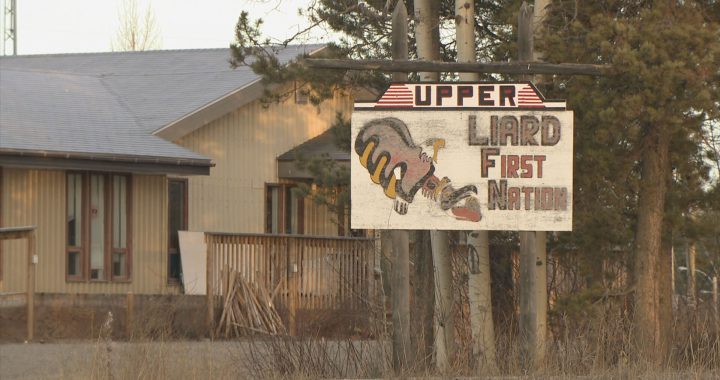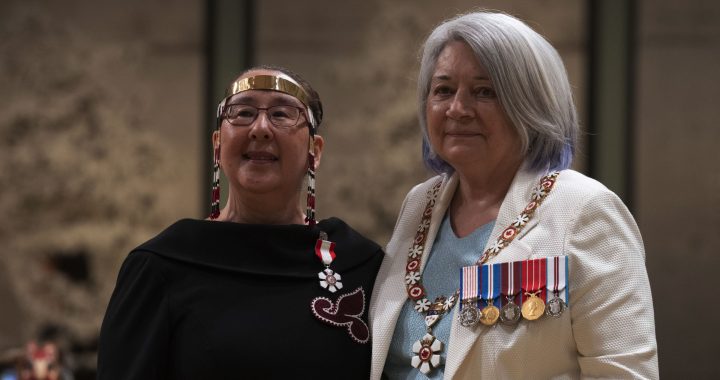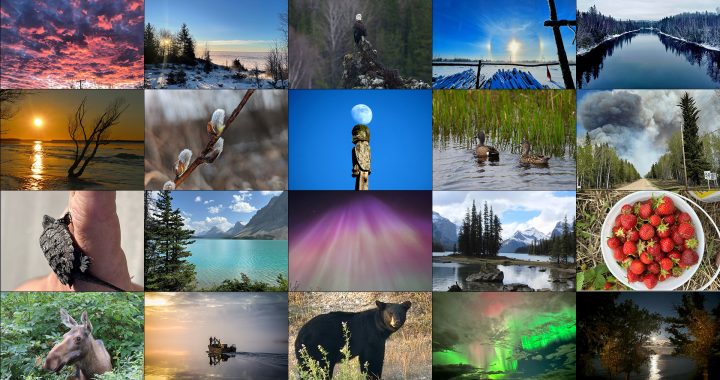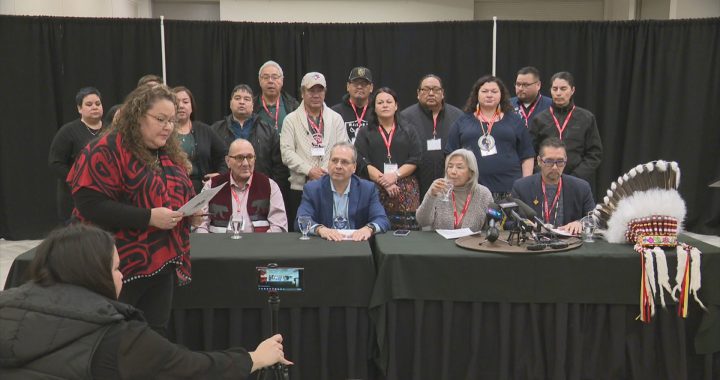A cover of Blondie’s 1979 hit, Heart of Glass by Inuk singer-songwriter, Elisapie, has not only garnered the praise of fans but from the original singer and songwriters of the song as well.
The reaction, says Elisapie to her rendition in Inuktitut, has been “crazy.”
“It’s definitely much bigger than I was expecting. I just wanted to make sure that Inuit got it and they received it and felt something precious about that song,” says Elisapie on the latest episode of Face to Face.
“Blondie shared it and they said they loved it and Debbie Harry wrote to me, a personal message to me that was more than I asked for. That was so nice of them.”
Back in 1979, when it was first released, Heart of Glass topped the charts in numerous countries, including Canada.
She says the song takes her back to some of the most beautiful memories of her childhood and a time of innocence.
Elisapie says she was in tears during the recording of the song.
Translating the song from English to Inuktitut was a complicated process but Elisapie says it was made easier because of her love for the song.
Uummati Attanarsimat (Heart of Glass) is the lead single of an upcoming album of covers sung in Inuktitut that will include tracks by the likes of Metallica, Pink Floyd and Fleetwood Mac.
The month of March roared in like a lion for Elisapie, who’s last album, 2019s The Ballad of the Runaway Girl, was nominated for a Juno and shortlisted for the Polaris Music Prize.
In addition to releasing the new single, Elisapie also partnered with Spotify to take over the streaming service’s Indigenous playlist. A billboard bearing her face went up in Toronto’s Yonge-Dundas Square.
Elisapie used the opportunity to shine a light on the north, and not just the Canadian arctic, but also music from Alaska, Greenland and Norway among other places.
She says many artists have guided her life and career, including William Tagoona and Willie Thrasher, whose songs she has covered.
But one artist in particular changed her life an made her fall off her chair the first time she heard the voice.
“When I got the CD for Susan Aglukark for the first time, a cassette actually, everything changed for me,” she says. “That’s when I was like ‘oh my goodness I can maybe start thinking about maybe a young girl from a small town, an Inuk girl can actually make a record and put it out there.’ I owe a lot to Susan, I think we owe a lot to Susan.”
In 2005, Elisapie won a Juno Award for Aboriginal Recording of the Year with her band Taima.
She believes the music industry has undergone big changes in the past 20 years.
“I think we have our place in the music industry and I think our languages also have a place,” says Elisapie.
“I think things are changing very quickly. And I think people are more and more curious and realizing they have been missing out not knowing Indigenous people more. I think we were like people who were pretty much starving and when we finally get to eat, we’re feeding,” says Elisapie.













